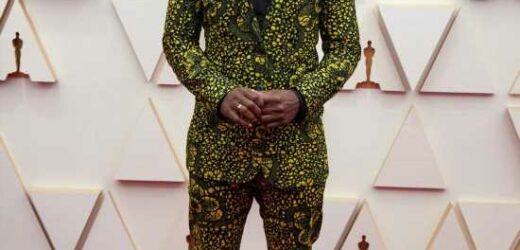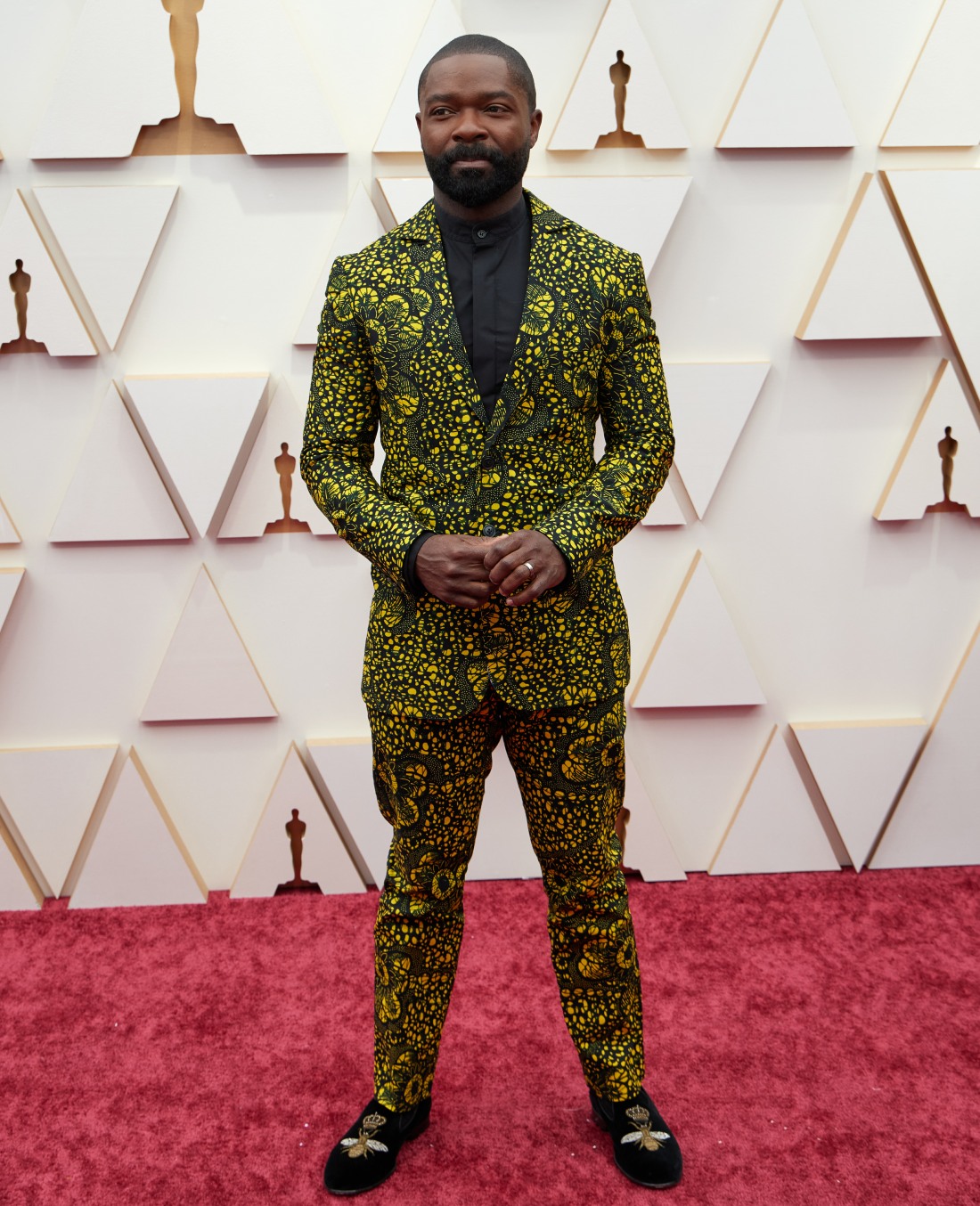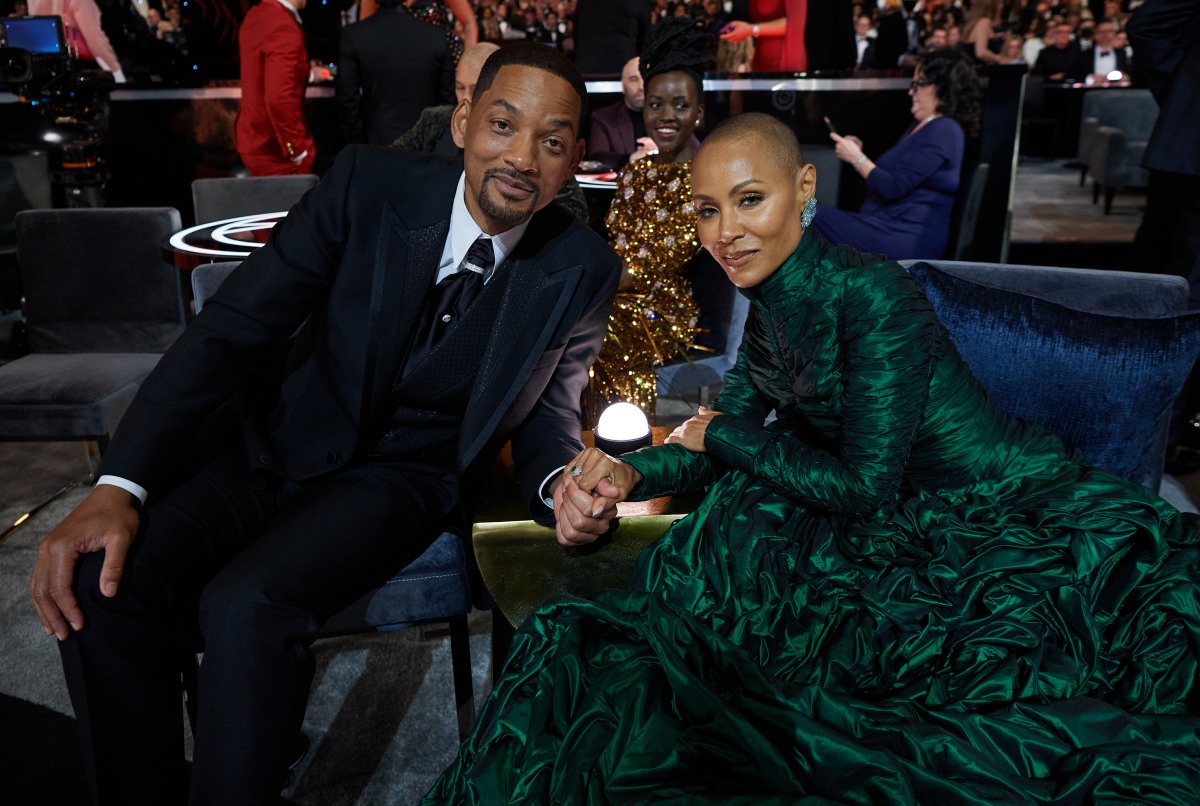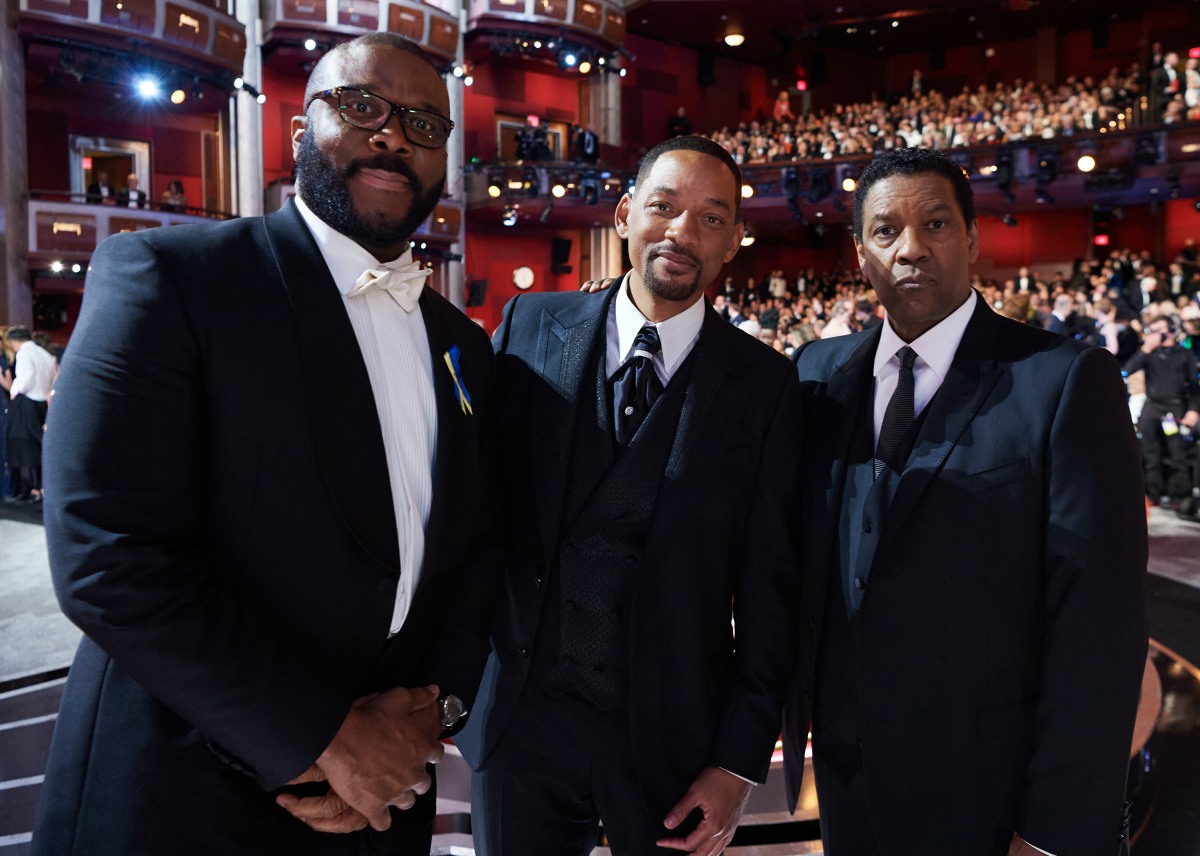Two Sundays ago, Will Smith walked on stage at the Oscars and slapped Chris Rock. Will walked back to his front-row seat as Chris said “Wow, Will Smith just smacked the sh-t out of me. Wow, dude, it was a G.I. Jane joke…” Will, now seated, yelled “Keep my wife’s name out of your f–king mouth” twice. I’ve never denied how shocking the moment was or how inappropriate it was. Will Smith was wrong, period. But many people, especially many Black women, saw that everything wasn’t black-and-white, and there was nuance to the conversation, especially given Jada’s alopecia and Rock’s history of targeting Jada in particular. There was history there, and it colored the incident and many people acknowledged that. Some did not. Some people decided that what Will did was the worst thing that ever happened, that the stage of the Dolby Theater was drenched in blood, that no one would ever be able to recover from the trauma of seeing a man slap another man.
Today, the Academy’s higher-ups are meeting to discuss what should happen to Will, even after he repeatedly apologized and willingly gave up his membership in the Academy. Several punishments are on the table, clearly. Which brings me to this Hollywood Reporter guest column by David Oyelowo, who was actually there at the Oscars and witnessed the moment. He had a lot of thoughts about how racialized the Slap has become within Hollywood. Some highlights:
Oscars attendance: My experiences of attending the Oscars over the past few years have been steeped in unexpected drama and a constant intersection of public opinion, politics and race. In 2015, I had a front-row seat to the beginning of #OscarsSoWhite, having starred in the film that had a hand in starting it all, Selma. Two years later, I became part of a viral meme after my reaction was caught on camera as La La Land was wrongly cited as the winner of best picture instead of the actual winner, Moonlight.
Being a Black man in the world: As a Black man in the public eye, you are constantly aware of the fact that your very existence is political. You are consistently in a state of either being used as an example to perpetuate or debunk a stereotype. Those stereotypes are tied to criminality, civility, education, sexual prowess, poverty, social responsibility and so much more. It’s a burden I have to accept despite it being exhausting.
The Slap: The moment I realized the nature of what had just occurred on the stage at the Dolby Theatre, I was confronted by the same rising anxiety all Black people feel when the face that flashes up on the news after a crime is reported, is a Black one. You find yourself thinking, “What does this mean for us?” “What does that mean for me?” Very soon after the now-infamous Oscar ceremony, I walked into an Oscars afterparty and was immediately confronted by that which I feared. An older white gentleman sidled up to me with relish in his demeanor and said, “He should have been dragged right out of there.” You may well agree with that sentiment, but it’s not what he said, it’s the way he said it. I know that relish. I know that demeanor, and it is ugly to its core in all of its coded messaging.
Pushback on inclusive Academy membership: Since #OscarsSoWhite, great gains have been made by the Academy and the entertainment industry. The then-Academy president, Cheryl Boone Isaacs, despite immense internal opposition and pressure, led the charge in forcing the Academy to improve its disgracefully uneven racial and gender demographics. That change clearly led to films and artisans who would traditionally be ignored being celebrated over the intervening years. That example had the very welcome effect of permeating our industry. It would be naive to assume that the incident between Will Smith and Chris Rock will not be pushed, by some industry professionals, through the lens of race. Some of them will be the same folks who resisted the inclusion measures Cheryl Boone Isaacs and her supporters at the Academy managed to push through and which led to a more diverse Academy.
Hollywood’s Big Lie: This intersection of personal opinion, politics and race is the same reason Black artists have for decades had to deal with Hollywood’s “big lie”: that Black films and artists don’t travel. Will Smith himself had a big hand in debunking that lie. It’s also the reason we have traditionally been celebrated more for playing subservient and criminalized roles than empowered and inspiring ones. It’s the reason we still have barely any Black executives who have the autonomy to greenlight anything that gets made.
Oyelowo’s fear: My fear is that this unfortunate incident, which has us all processing, will have a negative effect on the ongoing push for inclusion. There are those who, in a bid to make sure something of this nature never happens again, will operate through an unconscious — or conscious — bias. A bias that still governs so much of the decision-making in Hollywood. It would be tragic if a bid to prevent such an incident from happening again becomes an excuse for ideas about inclusion and diversity to backslide. That would only confirm the disingenuous nature of some of these pledges in the first place. This incident should not be a springboard for proxy arguments in Hollywood circles about race, respectability and belonging.
[From THR]
Exactly, I agree with him completely and it’s been fascinating and grotesque to watch the racial dynamics play out in real time – it wasn’t a history lesson, it was people overreacting, or reacting with racial bias, in real time, as it unfolded. And Oyelowo is absolutely right that there will be larger repercussions for inclusivity movements within Hollywood too. Even before the slap, there were old, white Academy members bitching about the “new members” and how much things had changed. Ugh.
Embed from Getty Images
Photos courtesy of Getty, Avalon Red.
Source: Read Full Article





